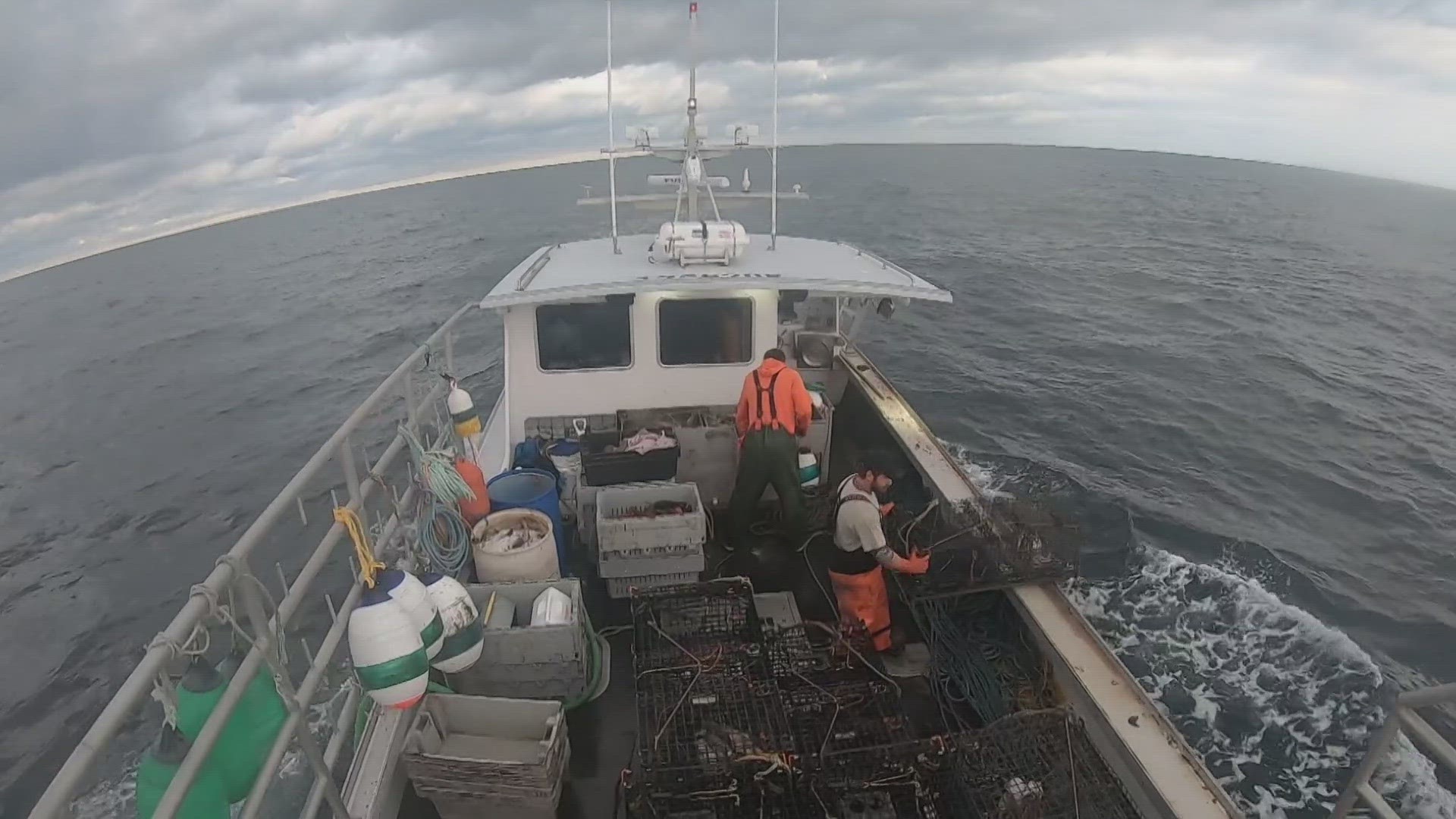PORTLAND, Maine — Will Spear has walked the Portland waterfront countless times before. He's been a commercial lobsterman for 62 years.
He hopes his family will continue on the tradition of lobster fishing, knowing how much the industry has changed in his career and how much it will change after.
"It will be different in some ways, but I can never see it working out without marked gear," Spear said.
He is talking about increasing pressure from the federal government and environmental groups for more restrictions to be brought onto the lobster industry.
These restrictions specifically include measures to increase the use of ropeless, or on-demand, gear.
"It will be like walking in a minefield," Spear said, who added fishermen already see entanglements among their own gear, let alone adapting to a new kind of gear system.
"I worry about people's lives more than the lobsters," he said.
His sentiment is not alone. Most lobstermen contacted by NEWS CENTER Maine Wednesday didn't want to be interviewed because they were reluctant to use ropeless gear technology.
Department of Marine Resources Commissioner Patrick Keliher said he shares the skepticism and understands why fishermen don't want to use the new gear.
"Frankly, I'm not going to believe it until it is tested by the industry," Keliher said.
The funding has $2 Million going into sonar technology to detect ropeless gear, with $5 Million going into the ropeless gear itself.
Keliher said the sternness seen by the federal government over the ropeless gear technology further pushes away the fishermen.
"You are making assumptions and using those assumptions to deal with the livelihoods of individuals, it ensures those individuals they are never going to be on the side of the federal government," Keliher said.
He said despite all this, it is critical fishermen come to the table and volunteer their time to test this technology, so they can say they at least tried.
"We need data and the industry needs to step up and show us what they are telling us," Keliher said. "I am asking the fishermen to participate and I know they don't want to, we can't just go with them saying 'it won't work,' we need to know if it will work and more importantly if it won't work."
Keliher said his department would work to pay fishermen for their time spent testing out this new gear.
Erin Pelletier with the Gulf of Maine Lobster Foundation said she agrees, and part of her job will be convincing fishermen to give the gear a shot.
"They're not going to like what they get either way. If they can at least participate, they will feel better about it down the line," Pelletier said.
The Department of Marine Resources hopes to roll out the testing of the new gear in 2024.

